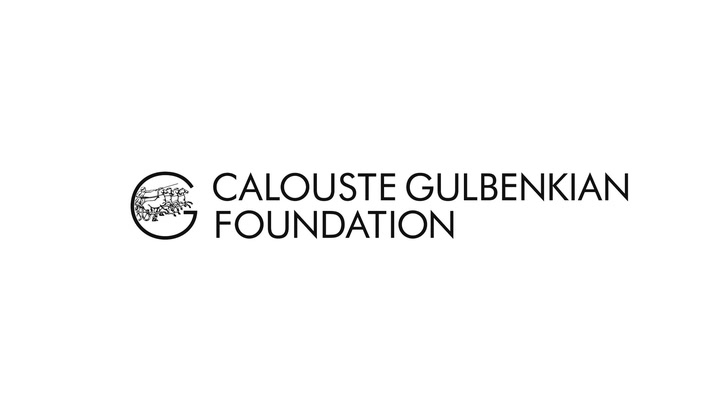Language, Identity, and Diaspora-focused Grant-making
Discussions in Los Angeles
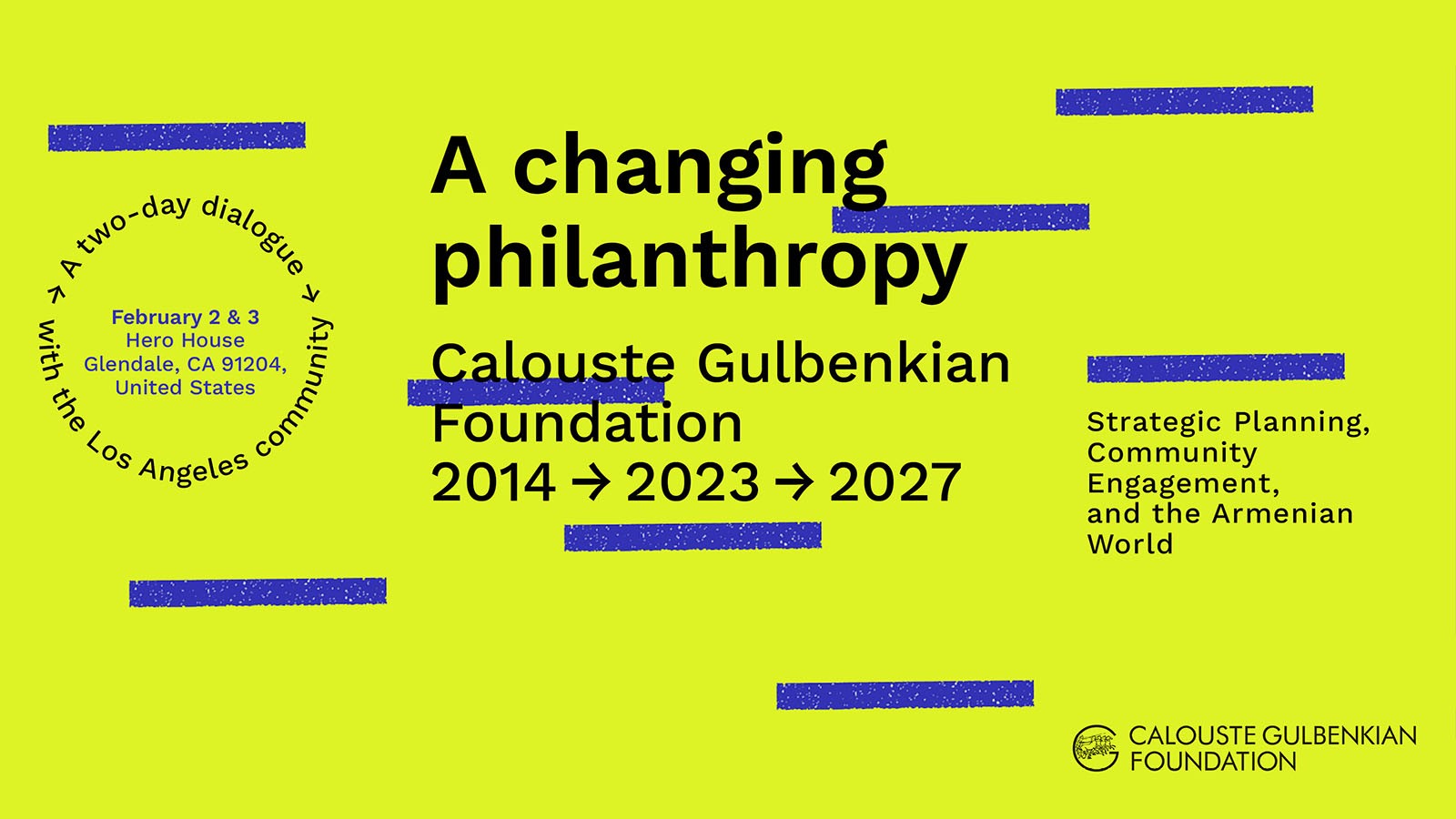
In February 2024, the Armenian Communities Department of the Calouste Gulbenkian Foundation embarked on a two-day conversation with the Los Angeles Armenian community. Hero House Glendale hosted the Foundation and many members of the community for lively discussions around the Foundation’s work over the past decade, around philanthropy, language, culture, and Armenia.
In conversation with various scholars and specialists, Razmik Panossian presented the Foundation’s work and engaged in deep discussions with Salpi Ghazarian (USC) and Houri Berberian (UC Irvine) around institutional vision and focused work, and highlighted some of the Department’s projects, drawing on some of the points from the A Changing Philanthropy brochure.
A key area of interest from the audience and the various speakers was the Department’s decision in adopting a Diaspora-centric approach in its grant-making. The Los Angeles public discussion was a great opportunity to reflect on the philosophy behind this unique approach, and to show that the outlook was not in contradiction to Armenia but rather complementary to it. As the Armenian Communities Department takes the institutional lead in ensuring the vitality of the Western Armenian language and culture, its approach is based on valorising the Diaspora, its distinctive culture, and its language, while remaining engaged in Armenia.
Dr. Panossian also took the opportunity to discuss the Department’s commitment to transparency and engagement with its stakeholders. The Department’s budget and spendings were of interest to many, and they were communicated openly. The Department makes all of its scholarship reports and funded project lists public through its bilingual website. The Department’s budget revealed the importance of focused grant-making as a way to lead to impact; with clear lines of action and targeted support positive change is possible.
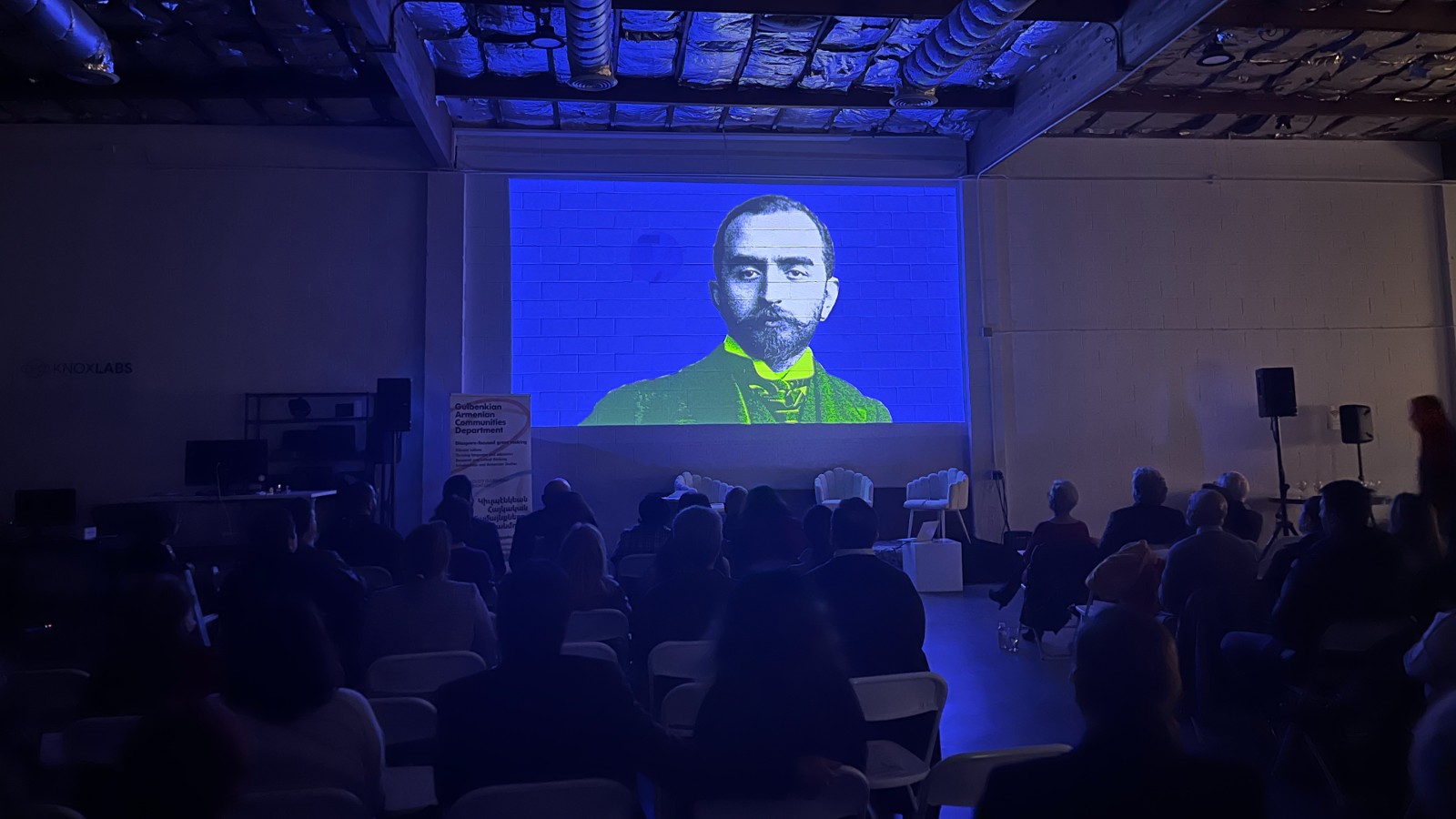
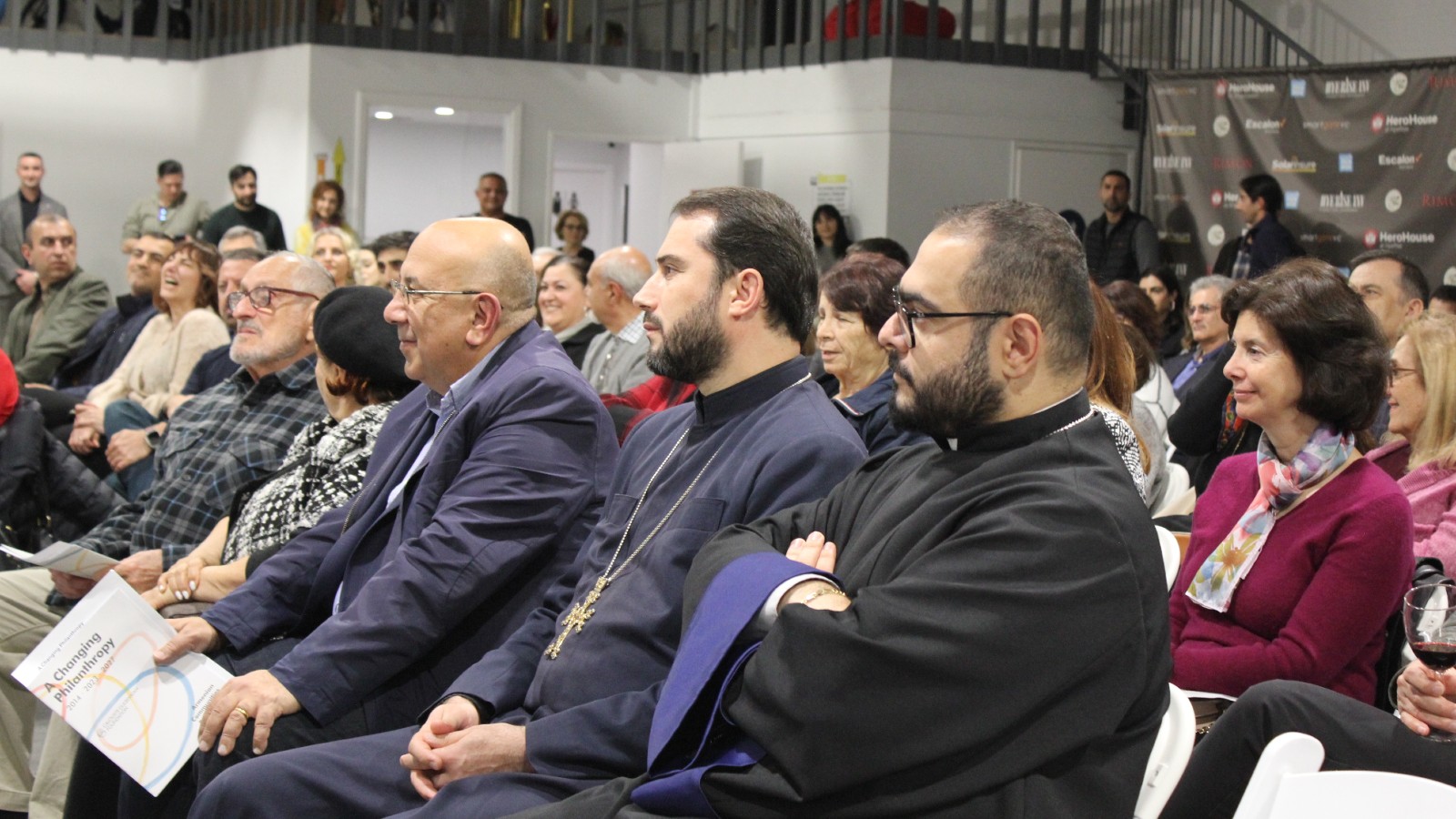
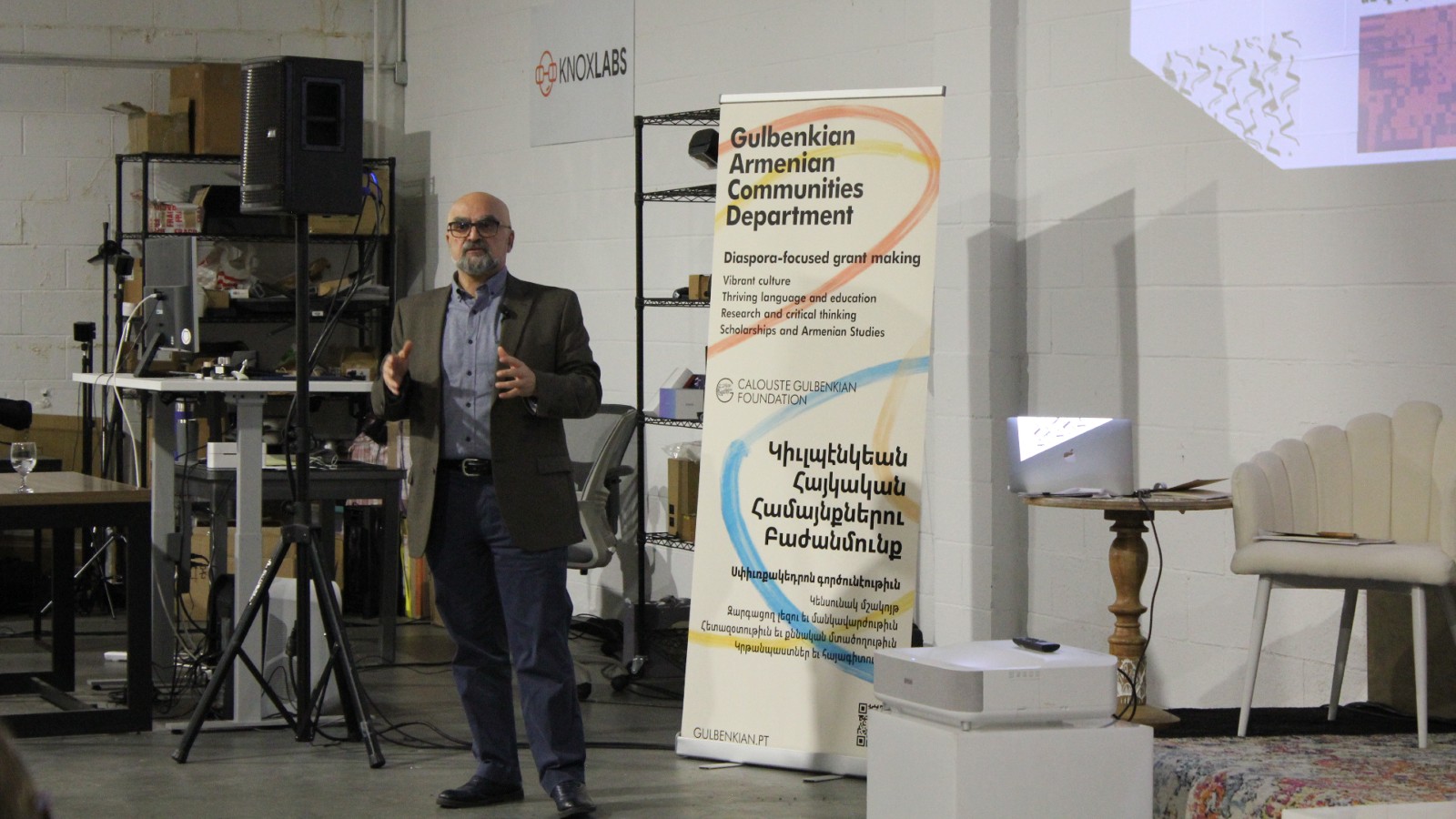
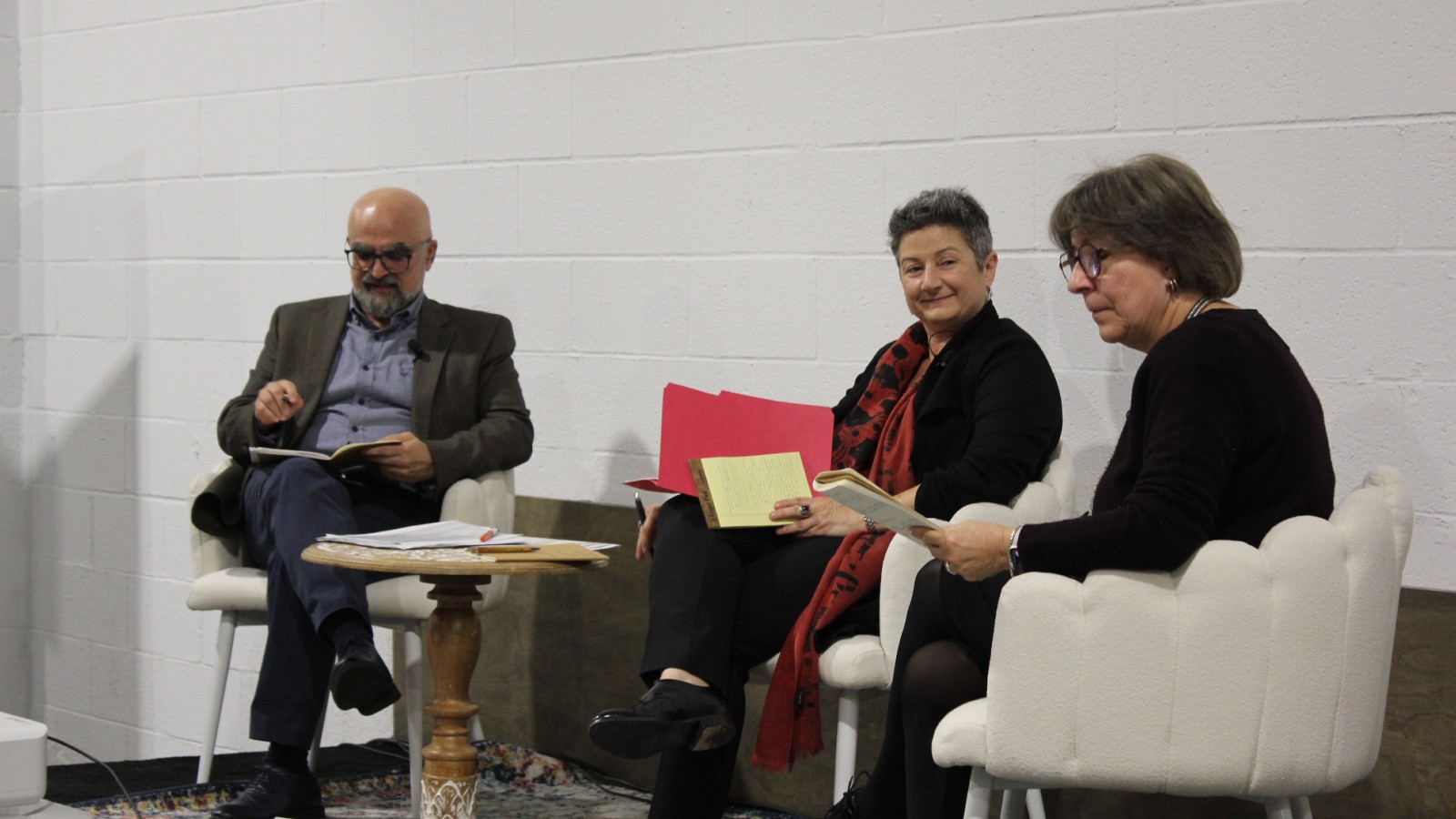
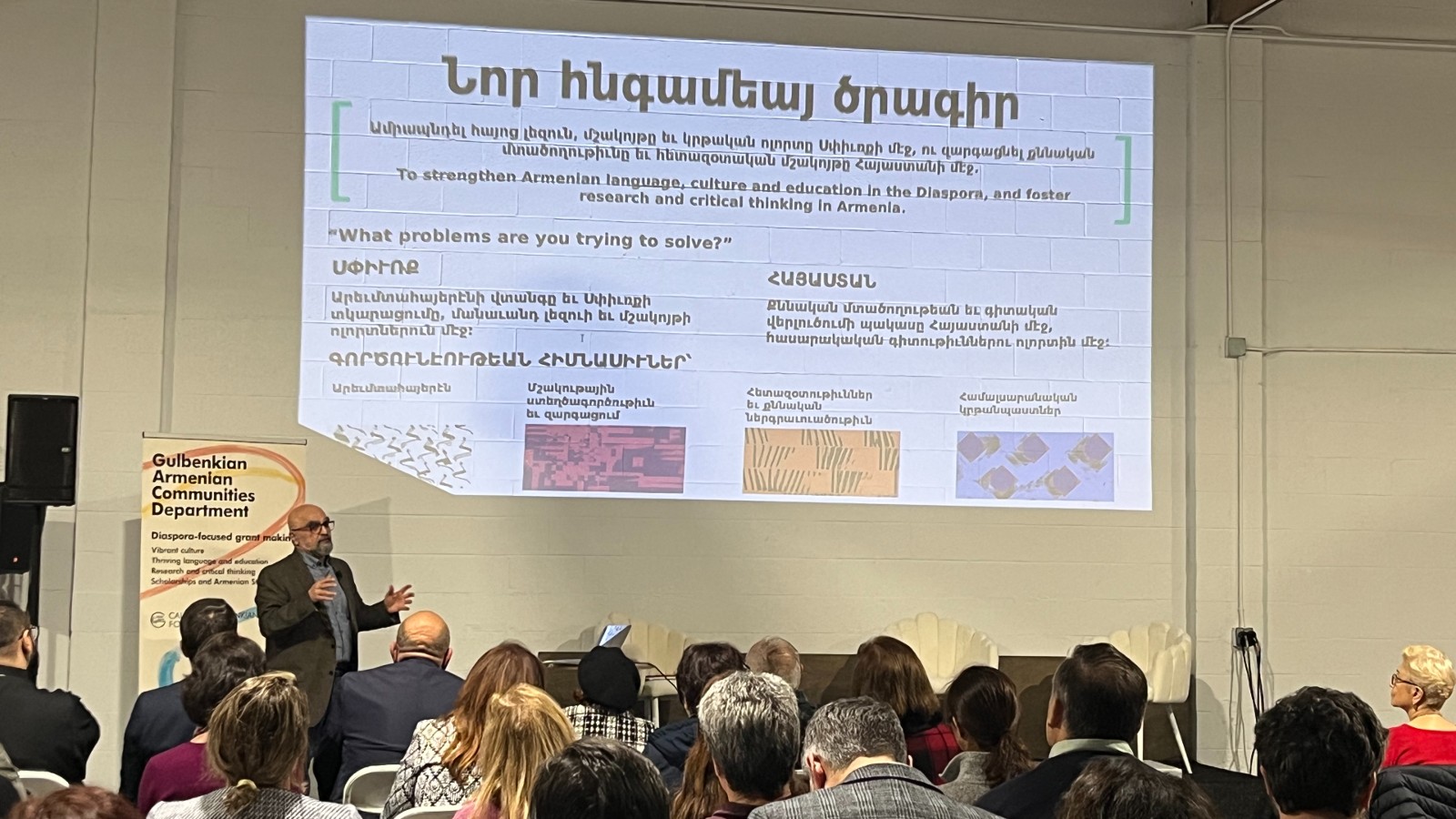
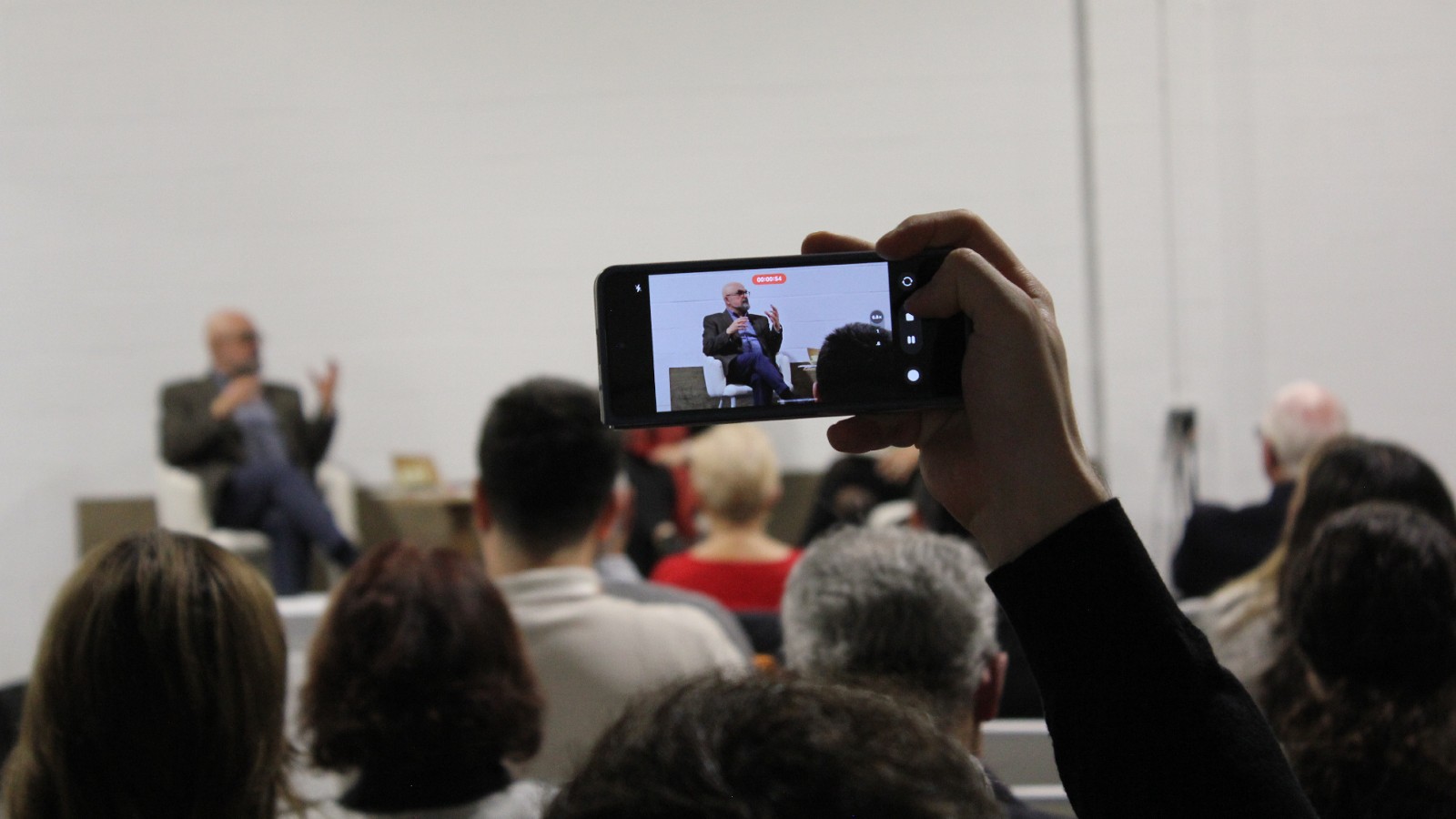
A summary video about the Department prepared for the occasion was shown to the audience:
The second day, February 3, saw three back-to-back roundtables addressing various interconnected themes. As Dr. Panossian led the first roundtable “Rethinking Philanthropy” with Donald Miller (USC), Lena Sarkissian (AGBU), and Ashot Arzumanyan (SmartGate VC), different approaches to philanthropic activities were discussed and the panel was enriched with different perspectives on grant-making. The audience was particularly interested to know how the different organizations represented by the participating discussants perceived their own work in the Armenian world, and how they perceived the immediate impact of their actions on Armenian communities, whether these were local or global. The roundtable also drew on non-Armenian experiences in a world of changing philanthropy to draw parallels with the Armenian philanthropic world, which is also changing in its own right, wherein new practices are emerging in focused philanthropy as opposed to the traditional act of donating. It was stressed that philanthropy, which is change-oriented, is different from charitable contributions.
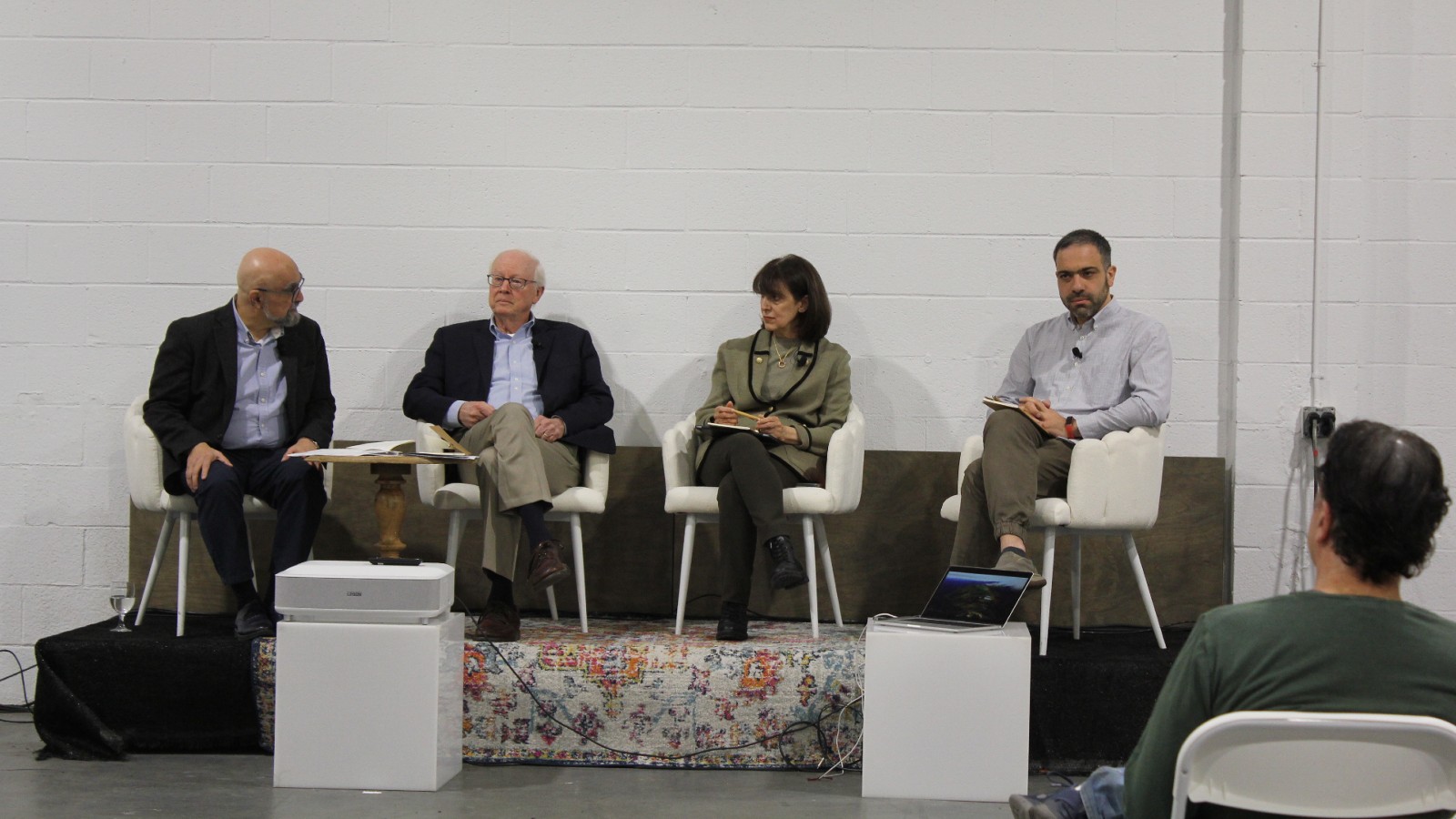
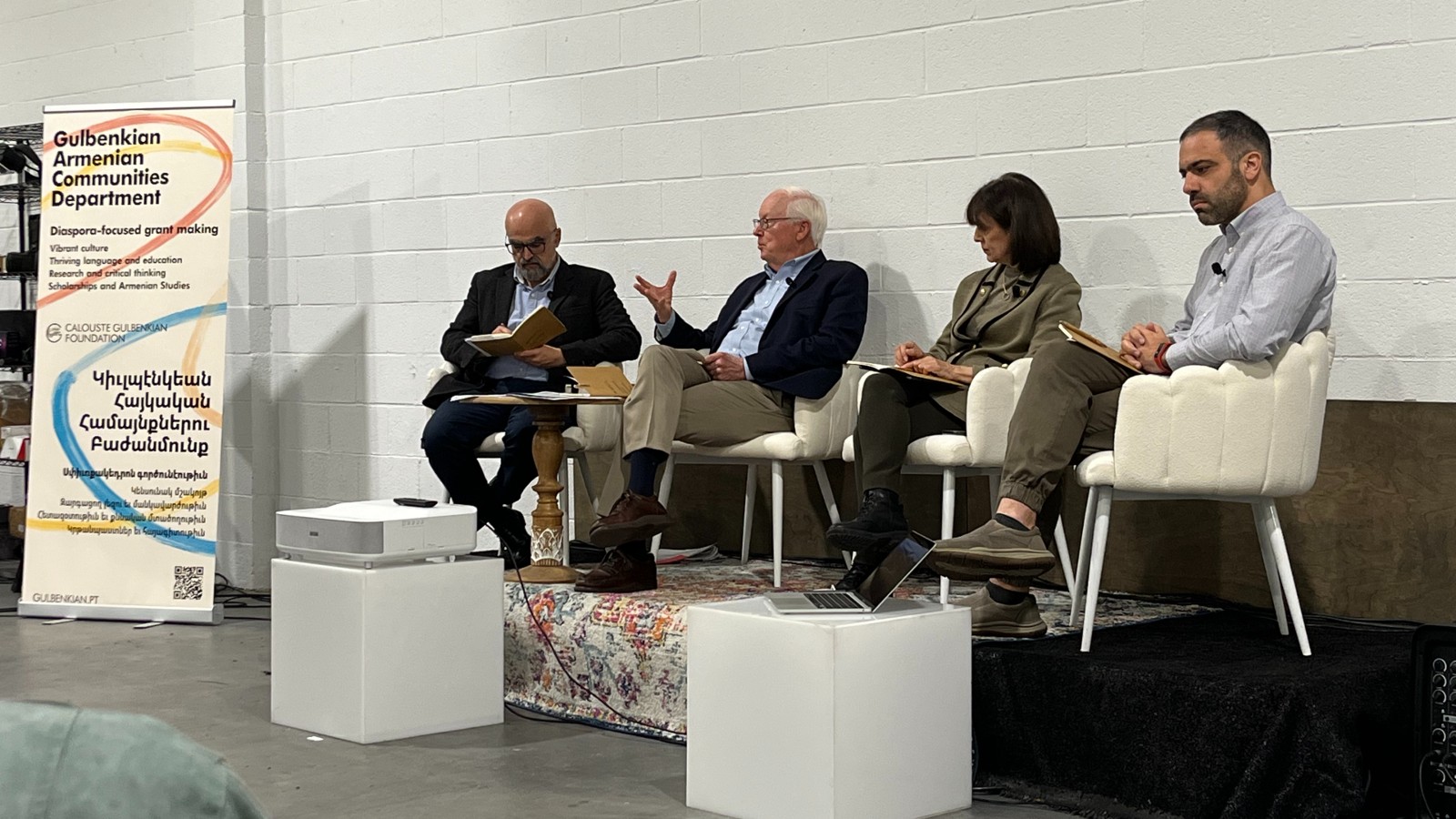
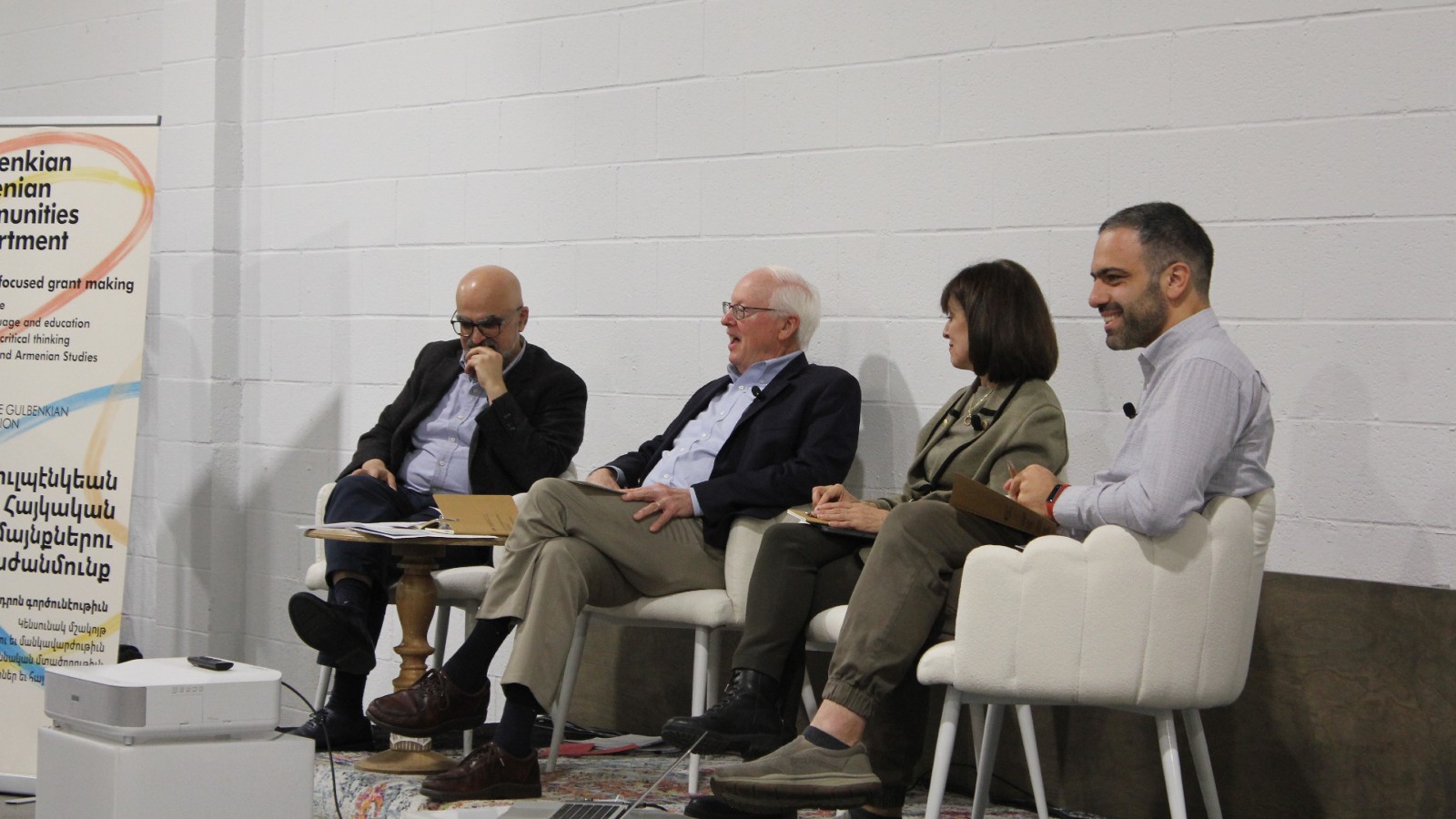
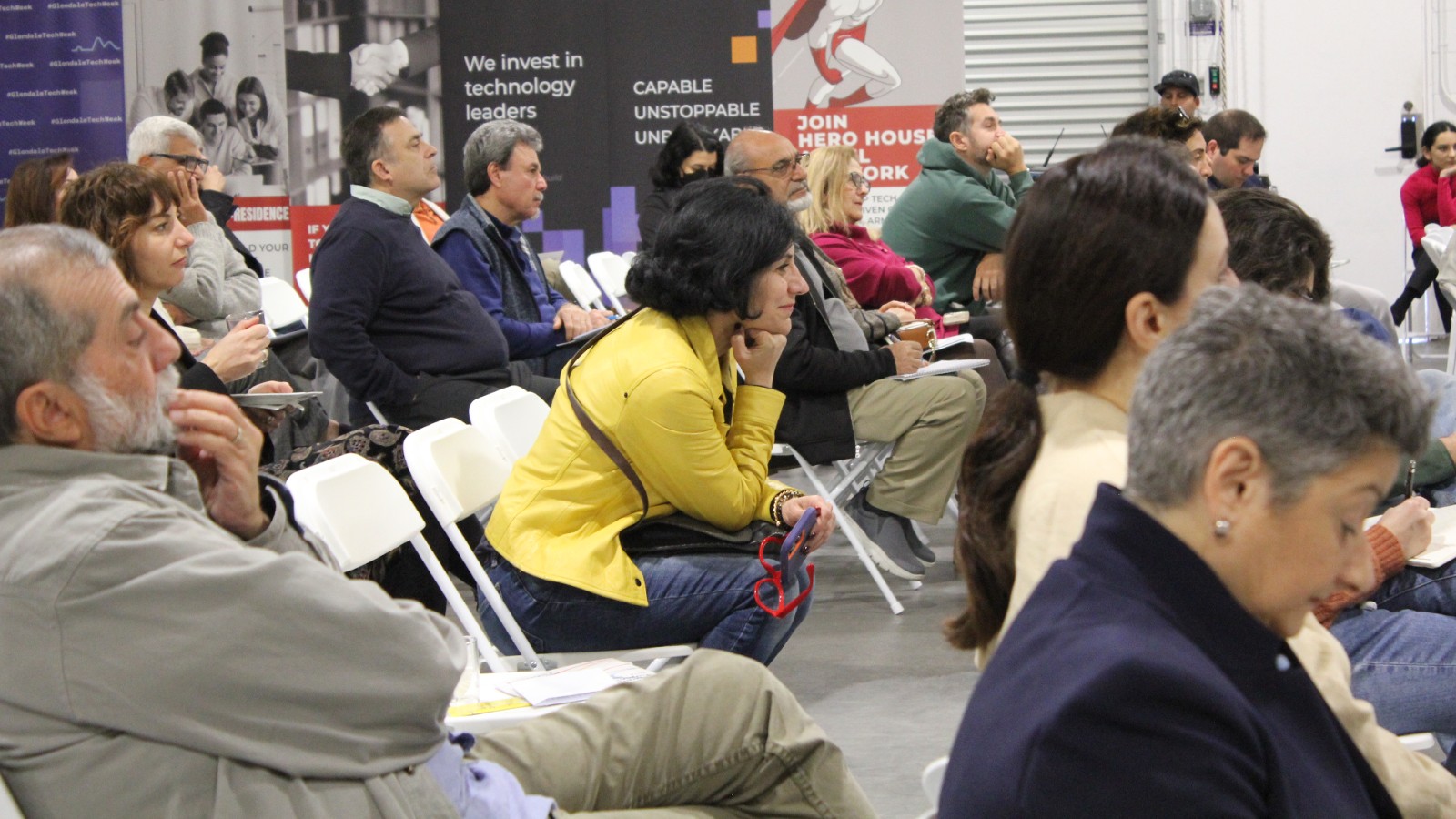
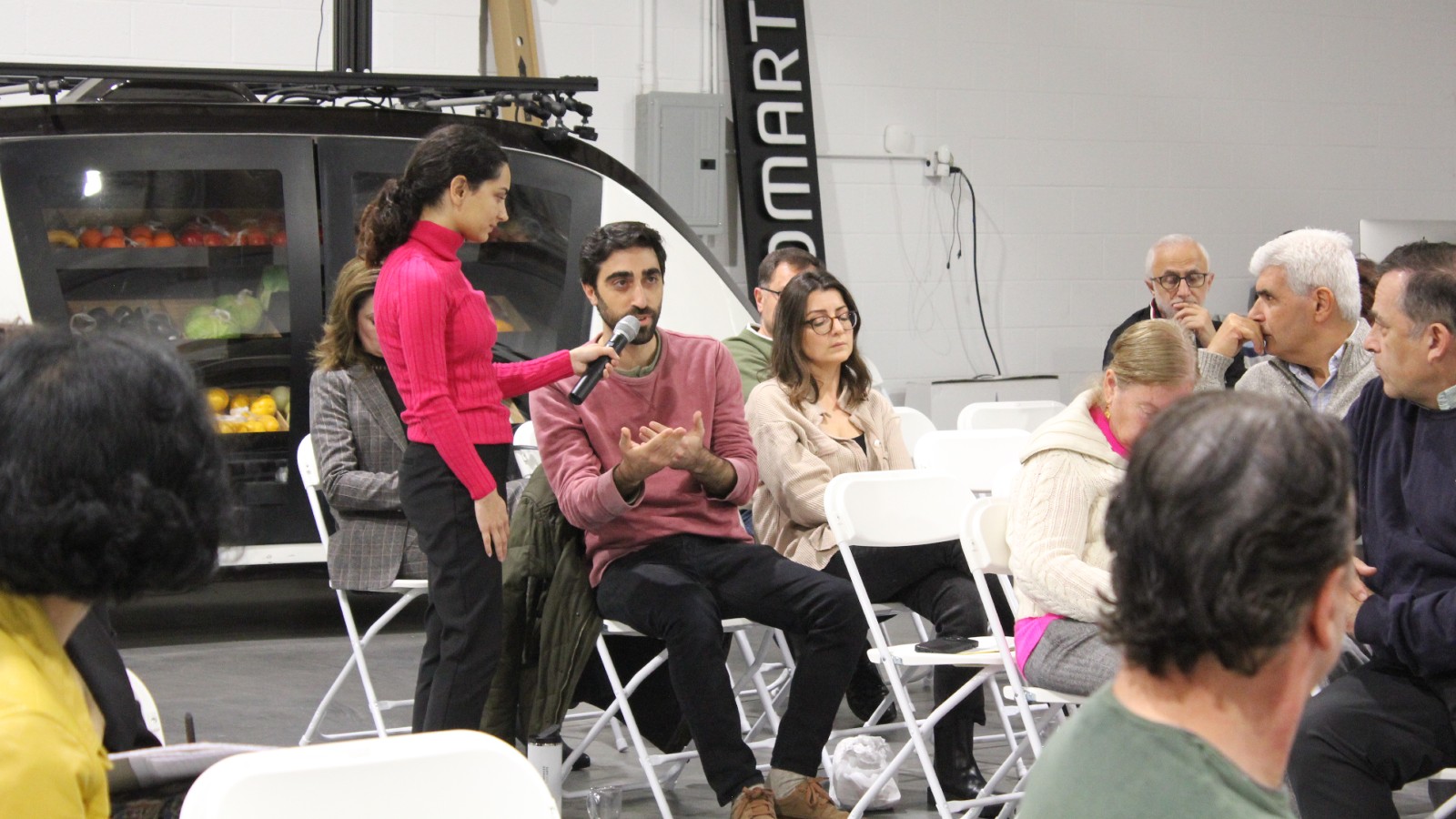
The various discussions and presentations over the two days alternated between Armenian and English. However, the second roundtable “Rethinking Language and Culture” was exclusively in Armenian, with both branches of the language, Eastern and Western, being used seamlessly by discussants Razmik Panossian (CGF), Shogher Margossian (CGF), Hagop Gulludjian (UCLA), and Shushan Karapetian (USC). Here, the discussion brought new life to the perception of language and what it can do for its users. Western Armenian was reimagined as a language of creation and innovation, a vibrant language and culture, through which one could engage with the world. The audience was particularly appreciative of hearing a discussion of this nature in the Armenian language. There is a need to bridge the language of the daily life with the language of the intellectual domain. This panel was one such bridge. The general concerns pertained to ensuring the language’s vitality, transmitting it to future generations, engaging with youth, creating a contemporary culture in the language, and keeping up with IT. The Foundation shared its positive experiences in these fields and reinstated its commitment to its Armenian-language-centred activities.
This discussion also brought about the need to lead by example, both in the use of the language and commitment to it. When we work for Armenian, whether it is at the academic, institutional or any other level, we also need to work in Armenian. The absence of Western Armenian from professional life and other such domains was addressed critically.
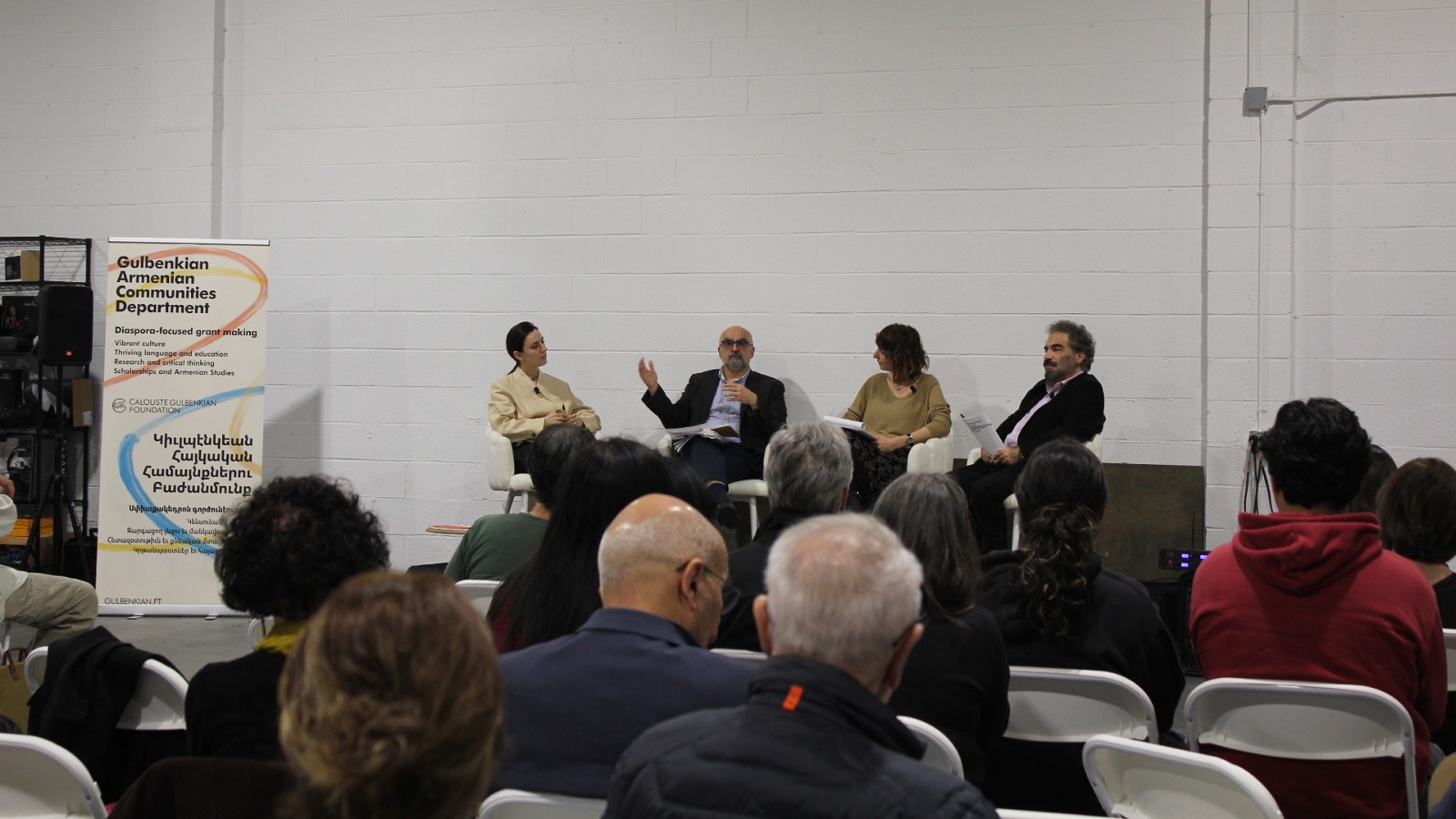
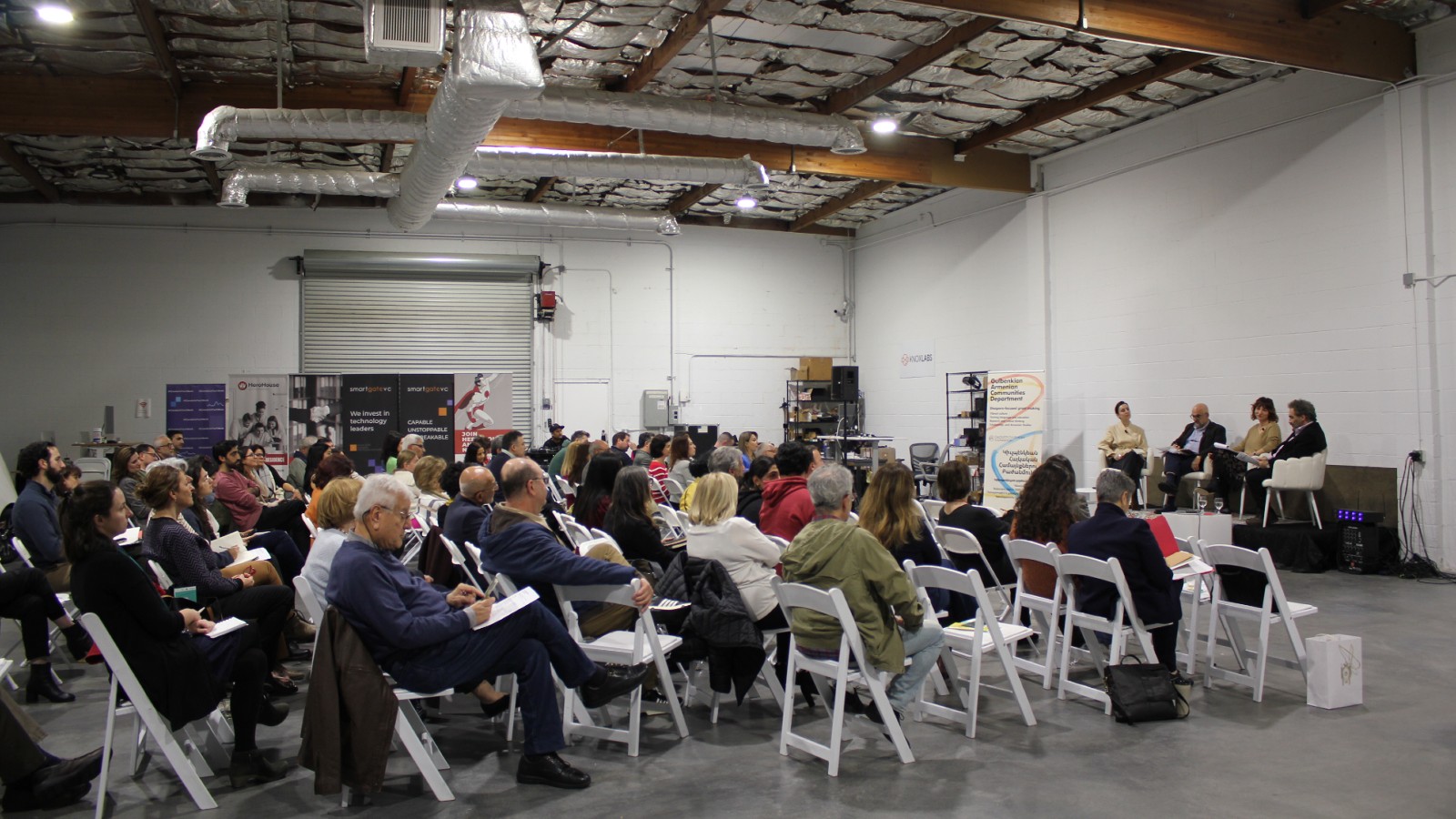
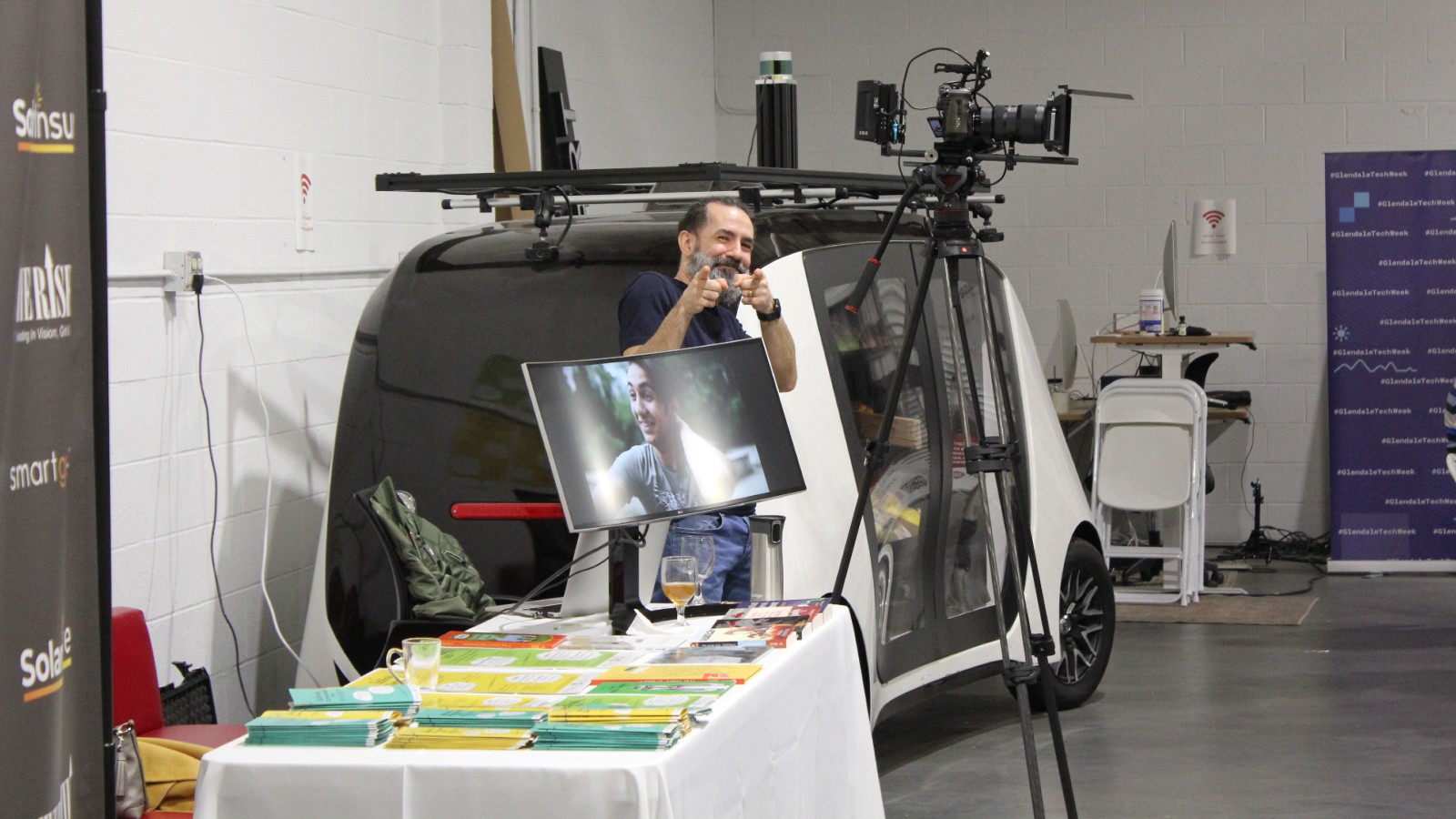
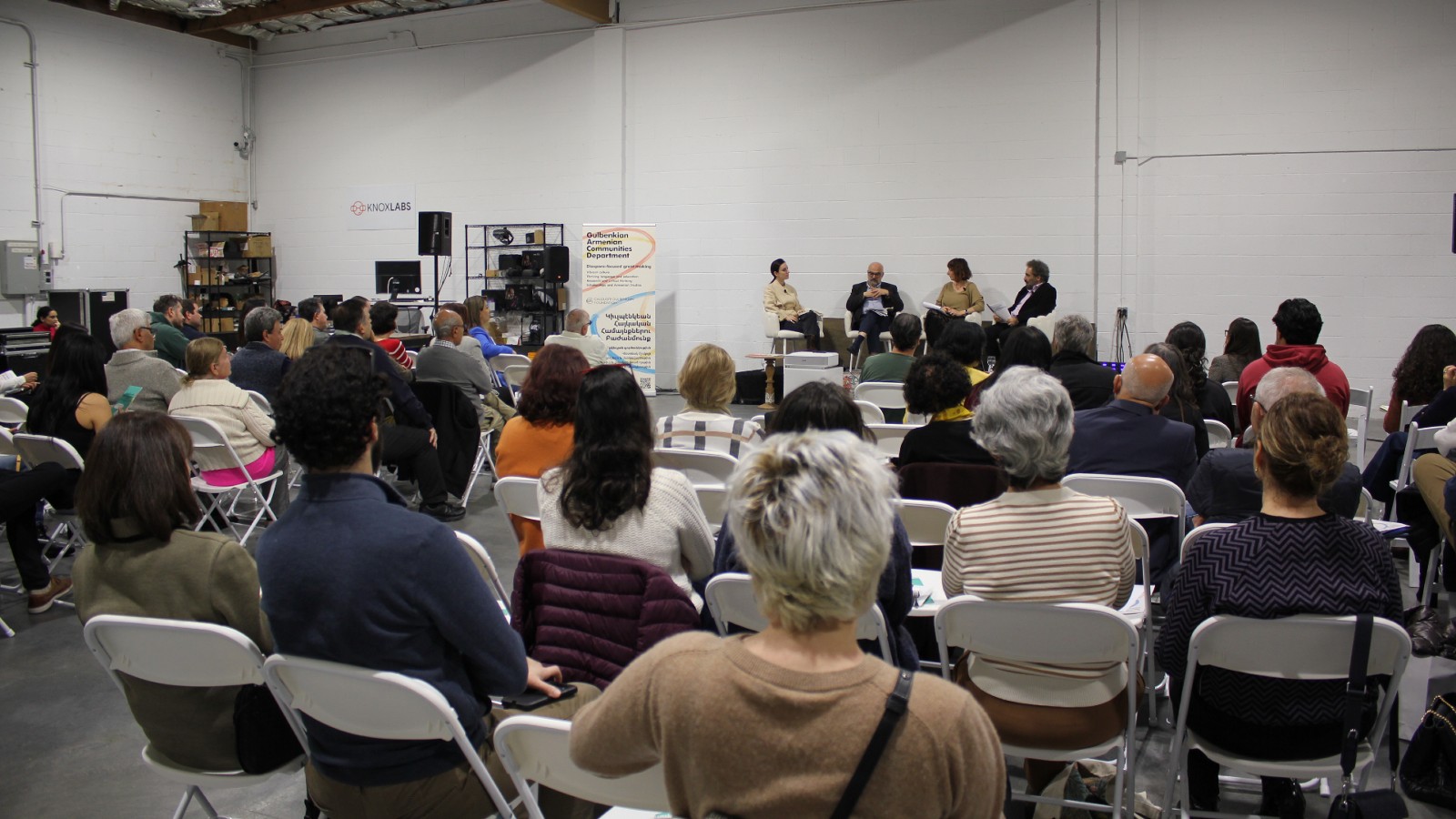
The final roundtable “Rethinking Critically” on Armenia and critical thinking in the Armenian world brought about diverse experiences, outlooks, and approaches through Salpi Ghazarian (USC), Houri Berberian (UC Irvine), Ashot Arzumanyan (SmartGate VC), and Shant Shekerdemian (UCLA) sharing their outlooks. The emergence of new models of bringing about positive changes in Armenia were of particular interest. Here, the input of diaspora-experienced Armenians in the tech industry, in healthcare and academia — among other domains — is of paramount importance. The networks, relationships, and partnerships formed between Armenia and Diaspora in themselves can enhance critical thinking.
The roundtable also addressed the reasons for the lack of critical thinking and the lack of training in critical thinking in Armenia, from academia to policy-making. The need for a critical approach and working with experts was stressed in order to achieve system strengthening and good governance. The discussants also highlighted the importance of critical engagement as a process to be practiced continually. This roundtable also put forth the challenge to rethink the Diaspora; to think about leadership and direction in education, among other issues. It was also pointed out that critical thinking is crucial in the shaping of informed citizens who can take part in democratic societies and ensure their sustainability despite serious crises.
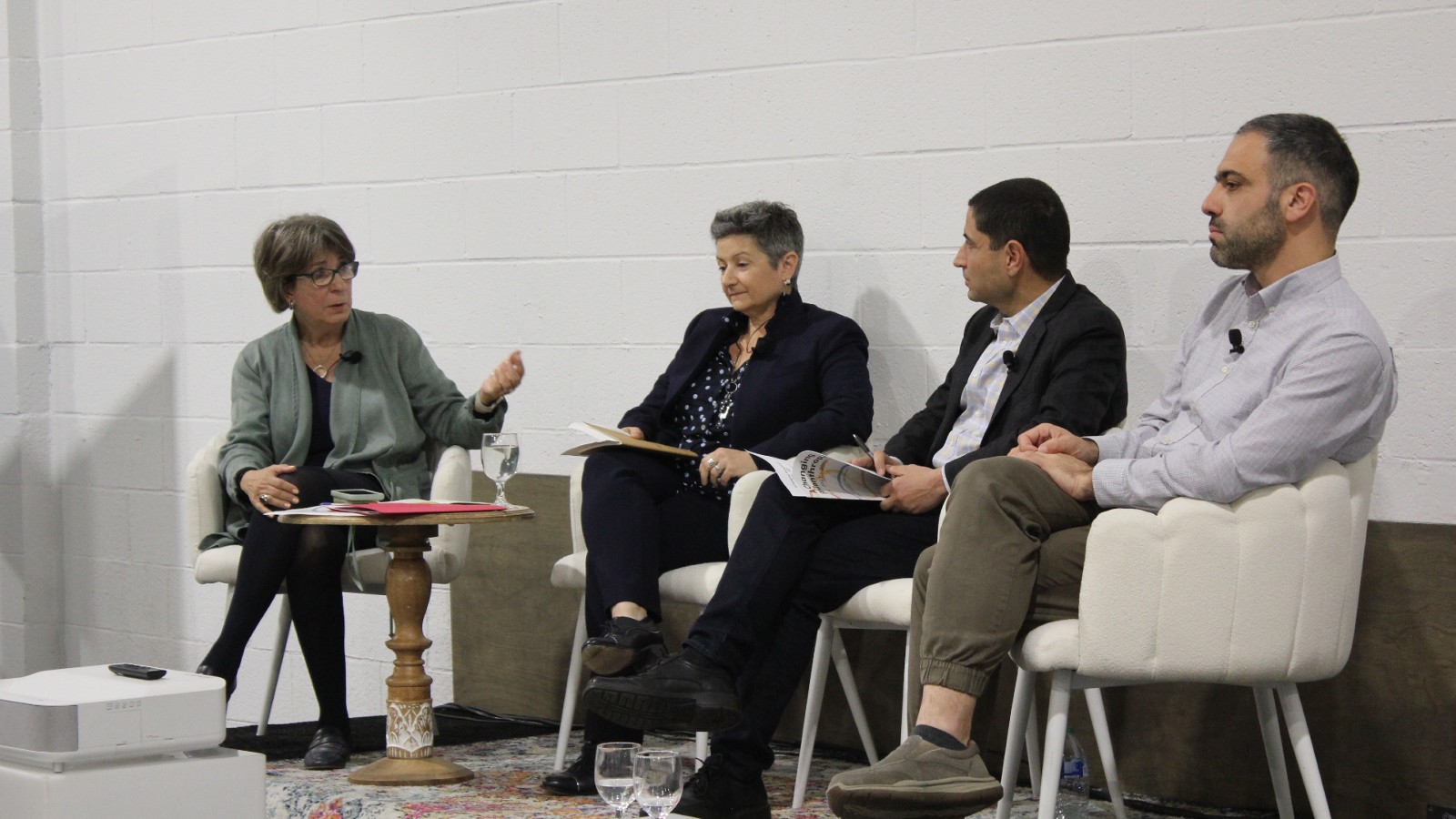
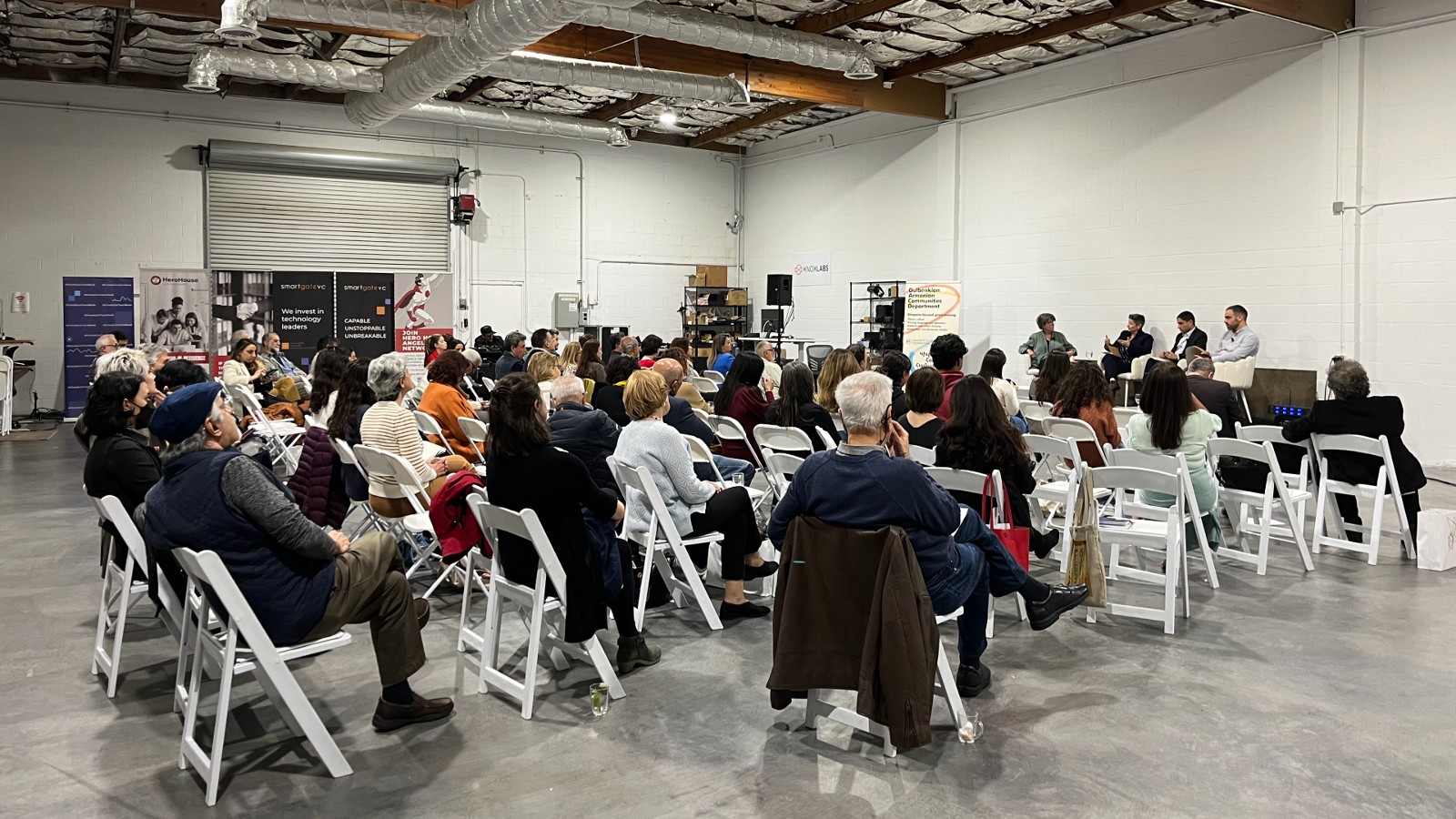
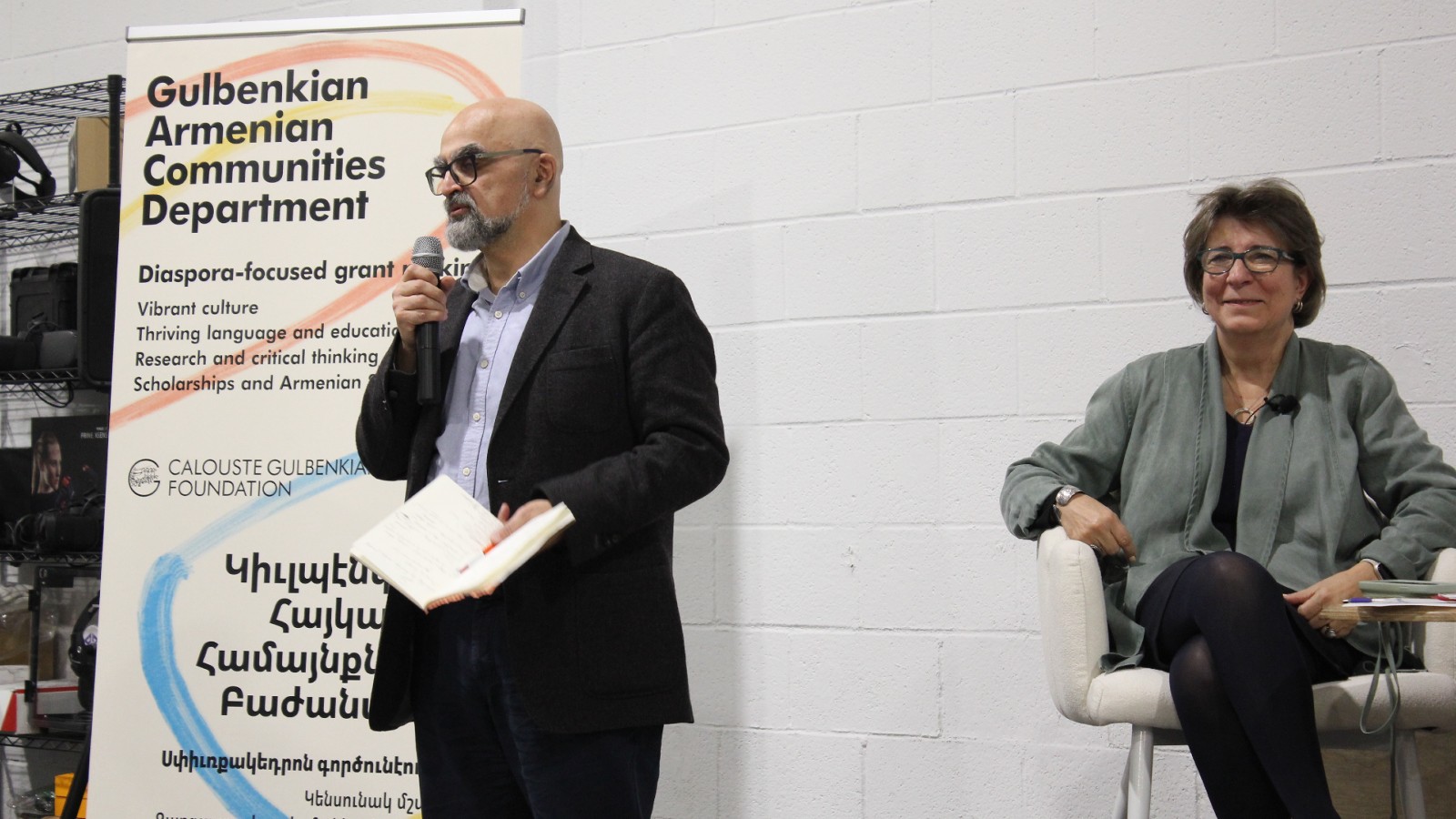
The Los Angeles events were a rare opportunity to bring the community, funding bodies, individuals, and specialists together for candid conversations about the gains and challenges of philanthropy, leadership, and the survival and development of a diasporic language and culture in the Armenian world. Los Angeles, as an important Armenian hub, is on the Foundation’s radar, and is a place where the Foundation hopes to be more present and active in carrying out targeted activities.
The two-day events were organized with the invaluable support of the USC Dornsife Institute of Armenian Studies.

